Downfall of Britain’s First Dominion
ontario, canada—
Looming out of the darkness were the imposing cliffs of Quebec. The light infantry’s boats had been swept farther up the St. Lawrence River than planned. Britain’s entire strategy to conquer Quebec depended on the decision of 30-year-old Col. William Howe. He made the bold choice.
Slinging their muskets and ammunition on their shoulders, the light infantry scaled the cliffs. At the top, Howe’s men took control from the French of the main road to the river. By 8 a.m., 4,500 British regulars and Scottish Highlanders had taken that road and were drawn up in a thin red line before the Citadelle of Quebec. The Marquis de Montcalm rallied 4,500 French regulars, local militia and various native tribes to attack the British positions. Firing erupted. Soon, the French fell into retreat and the British advanced with bayonets, the Highlanders with broadswords. Leading the charge, Gen. James Wolfe was shot three times.
Seeing the French in full retreat, he issued his final orders. Francis Parkman wrote, “Then, turning on his side, he murmured, ‘Now, God be praised, I will die in peace!’ and in a few moments his gallant soul had fled.”
On Sept. 13, 1759, Britain captured Quebec, a pivotal moment in the struggle for North America. In 1763, France surrendered all of Canada to the British.
Historian C. P. Stacy called this battle “a towering landmark in the establishment of British imperial power ….” It decided the foundation of Canada as a nation: part of the British Empire. In a stroke of historic poetry, it had unfolded on the Plains of Abraham. The place was named after farmer Abraham Martin, yet it was on these plains that God began to fulfill in Canada His 3,700-year-old prophetic promises to the biblical patriarch Abraham.
Canada in Prophecy
The history of Canada is an exciting story of miracles, intrigue and overcoming—and tragic failings. The Canadian story also paints the picture of how Bible prophecies, both inspiring and calamitous, have been and are being fulfilled. This is the true story of Canada you need to know.
In his book The United States and Britain in Prophecy, the late Herbert W. Armstrong explained that the master key to unlock the meaning of Bible prophecy is the biblical identity of our modern nations.
Is Canada in the Bible?
The United States and Britain in Prophecy tracks the ancestors of the Canadians and the British peoples back through millenniums to the ancient Israelite tribe of Ephraim. That tribe descended from Joseph, son of Israel, son of Isaac, son of Abraham. The promises that God gave Abraham and his descendants in the very first book of the Bible have formed the foundation of human civilization itself, all the way through to the modern age. Among them was God’s promise to Jacob, whom He renamed Israel, that “a nation and a company of nations shall be of thee” (Genesis 35:11). Later, God inspired Israel to give particular blessings to his grandsons Ephraim and Manasseh, and to reveal that “a multitude of nations” would descend from Ephraim (Genesis 48:19).
Britain ruled the largest empire in world history, and to this day it remains a commonwealth of nations. It is that “company of nations” God promised to the descendants of Ephraim!
Jacob prophesied in Genesis 49:22: “Joseph is a fruitful bough, even a fruitful bough by a well; whose branches run over the wall.” Mr. Armstrong explained in The United States and Britain in Prophecy that this meant Ephraim would become a colonizing people, “their colonies branching out from the British Isles around the Earth.” Canada, Britain’s first dominion, is one of those branches, secured for Britain in 1759. Mr. Armstrong continued: “But beginning in 1800 these two little nations [the United States and Britain] began to sprout and to grow into vast national riches and power such as no people ever possessed. Soon Britain’s Empire spread around the world, until the sun never set upon her possessions. Canada, Australia, South Africa were given dominion status—made free and independent nations, ruling themselves independent of England—a company, or commonwealth, of nations joined together, not by legal government, but solely by the throne of David!”

Canada’s biblical identity is the tribe of Ephraim. Its membership in this “company of nations” was prophesied in your Bible, as was its connection to the descendants of King David. Sir Winston Churchill called the monarchy the “golden thread” that tied the Empire and the commonwealth together.
Some of the birthright blessings of national greatness promised to Abraham were fulfilled in the history of the Canadian nation. Mr. Armstrong indicated that the main way was through Canada’s vast natural resources such as wheat fields, oil reserves, nickel and cobalt mines, and material to produce electricity and energy. Canada holds some of the greatest natural resource deposits in the entire world. Add to these advantages coasts on the two largest oceans on Earth, which have provided both protection and international trade, friendship and trade with its brother nation to the south (which descended from Manasseh), and especially the imperfect but superior system of British-derived principles and laws.
Micah 5:8 describes the British Empire as a “lion.” “Again, this symbolism describes the last generation of Israel as a great power—as a lion among the other nations of the Earth,” Mr. Armstrong wrote. “It is our peoples who have been like a ‘lion’ among the other nations of the Earth—preserving in two great world wars the peace of the world and stability for all human life on this planet!”
This is a recent historic fact. Canada contributed proudly to preserve the stability of the world: Its troops fought in the Boer War, World War i and World War ii, winning significant victories such as Vimy Ridge, the 100 Day Offensive and Juno Beach.
Canada’s success was made possible by its loyalty to the British crown. That loyalty has anchored our identity, our rule of law, our institutions, our freedoms, our prosperity and numerous other blessings.
However, just as the Bible prophesied the rise of the British Empire, including Canada, it also prophesied its demise. History and Bible prophecy reveal two major causes of Canada’s decline: compromise and infiltration.
The Catholic Citadel
If one word summarizes Canadian history and character, it is compromise. This spirit defines English relations with the French.
The French arrived in what would become Canada in the mid-1500s. The colony began to fail due to neglect by the French monarchy but was bolstered by direct intervention from Jesuits and the Catholic Church. The textbook Canada: A Story of Challenge states, “The power and influence of the order in New France rose rapidly in the following years, until, in fact, they almost came to dominate the colony.”
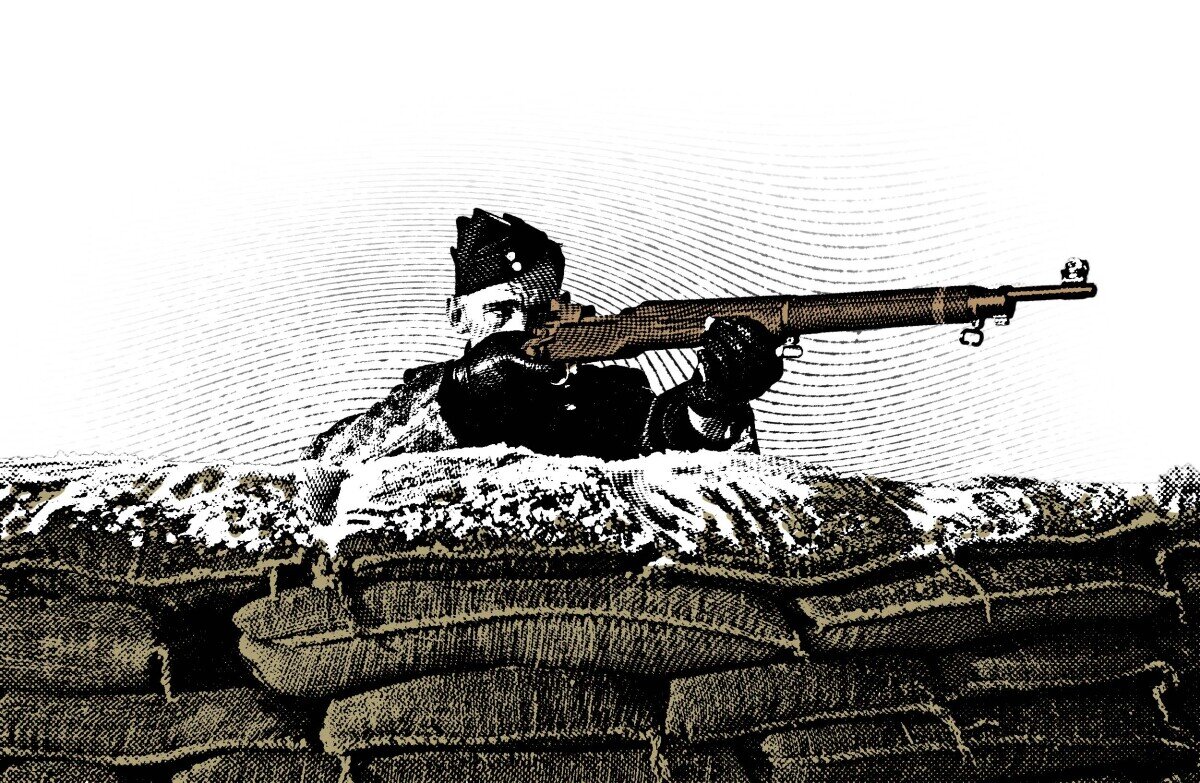
The Catholic Church gained unquestioned authority in matters religious and temporal. The first bishop of Quebec, François de Montmorency-Laval, aggressively linked the church in Quebec even more directly to Rome than to France.
“An ultramontane Catholic Church was one that stressed absolute obedience to the pope at Rome, denying the power of any national state to control or limit the church. … The church [in Quebec] turned its eyes only to Rome, and maintained considerable influence over policies of government. French Canada became and remained an ultramontane citadel” (ibid).
Quebecois have developed not only a distinct culture separate from the rest of the nation, but separate from France as well.
After the Battle of the Plains of Abraham in 1759, the terms of surrender stipulated that the French would be able to exercise the Roman Catholic religion without interference. The British hastily accepted the terms before French reinforcements could arrive. Within days of the British conquest of Quebec, the seeds of national division had been planted.
Four years later, the Treaty of Paris included a vague condition that granted freedom of religion in Quebec with conditions, including an oath of allegiance to the British monarch. Historian George Buxton wrote, “[I]t would seem that the British government aimed at abolishing papal control of the church in Quebec.” The British did not want to stir up a revolt in Quebec, but centuries of history had taught them how motivated and dangerous the Vatican could be in undermining non-Catholic Britain, its Abrahamic blessings and loyalty to the crown.
Just 11 years later, the British government compromised. Facing a possible revolution in the 13 colonies to the south, the government appeased the French population with the Quebec Act of 1774, granting greater freedom of religion, allowing the precedence of French civil law over English civil law, and abolishing the oath of allegiance. This has been the cornerstone of English-French relations ever since.
“The Quebec Act meant that the province of Quebec had been put on a special basis by an imperial act of Parliament,” states Canada: A Story of Challenge. “The chance to fit Quebec from the beginning into the ordinary pattern of British institutions had been lost.”
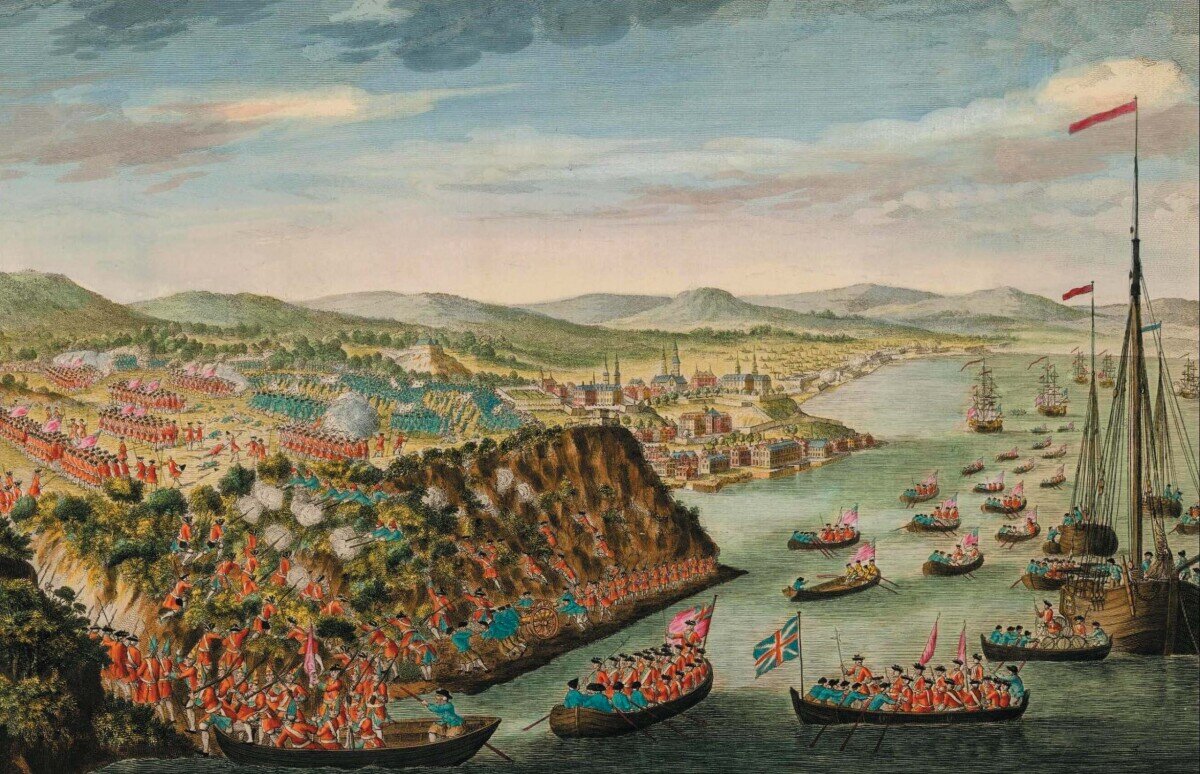
The Quebec Act created a 50-50 union between a Protestant English colony descended from Ephraim that received the birthright blessings and was loyal to the throne of David, and a Catholic French population that had descended from another Israelite tribe, Reuben, which had lost the birthright and was loyal to the papal throne. Trumpet editor in chief Gerald Flurry writes in The New Throne of David, “The Catholic Church’s main goal throughout the ages has really been to destroy David’s throne. It cannot stand the thought of someone else having the preeminent throne on Earth!”
Catholic Quebec has successfully used legal tools and media pressure to drive British identity out of Canadian consciousness. Jesus Christ said that a house divided against itself cannot stand (Matthew 12:25). Quebec has refused to unite with the rest of the nation and has maintained a persistent movement to secede. In addition, nearly all the major Communist infiltrators into the country have deep connections to Quebec. Canada has consistently tried to solve these divisions through compromise.
Infiltration
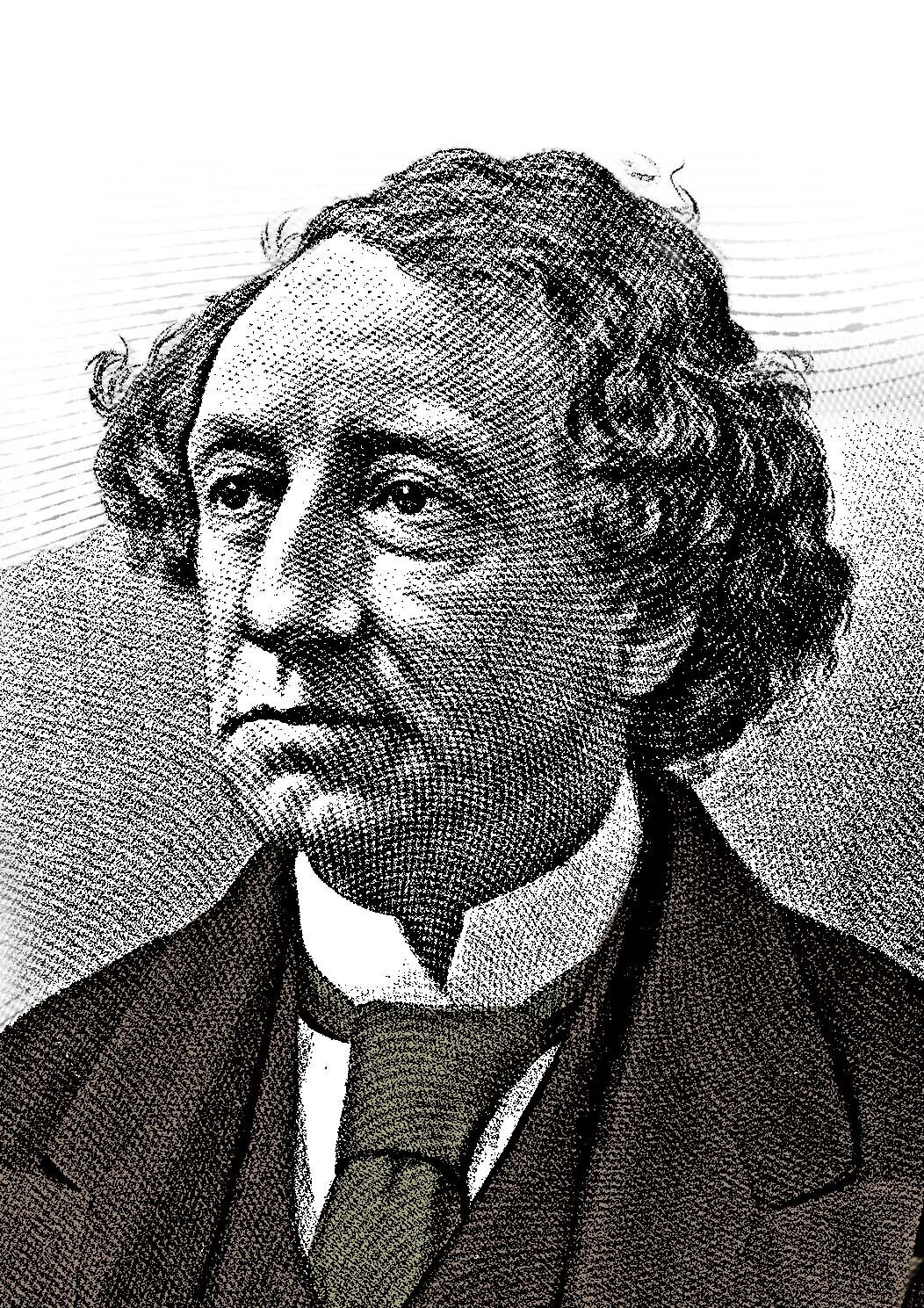
It is miraculous that Canada became a nation in 1867. Several of Britain’s and Canada’s top leaders had a miraculous change of heart that led them to work together to forge a new nation. Sir John A. Macdonald, the chief architect of confederation and first prime minister of Canada, was, as biographer Richard Gwyn wrote, the embodiment of loyalty to Britain. Macdonald told Queen Victoria that the purpose of confederation was “to declare in the most solemn and emphatic manner our resolve to be under the sovereignty of your majesty and your family forever.”
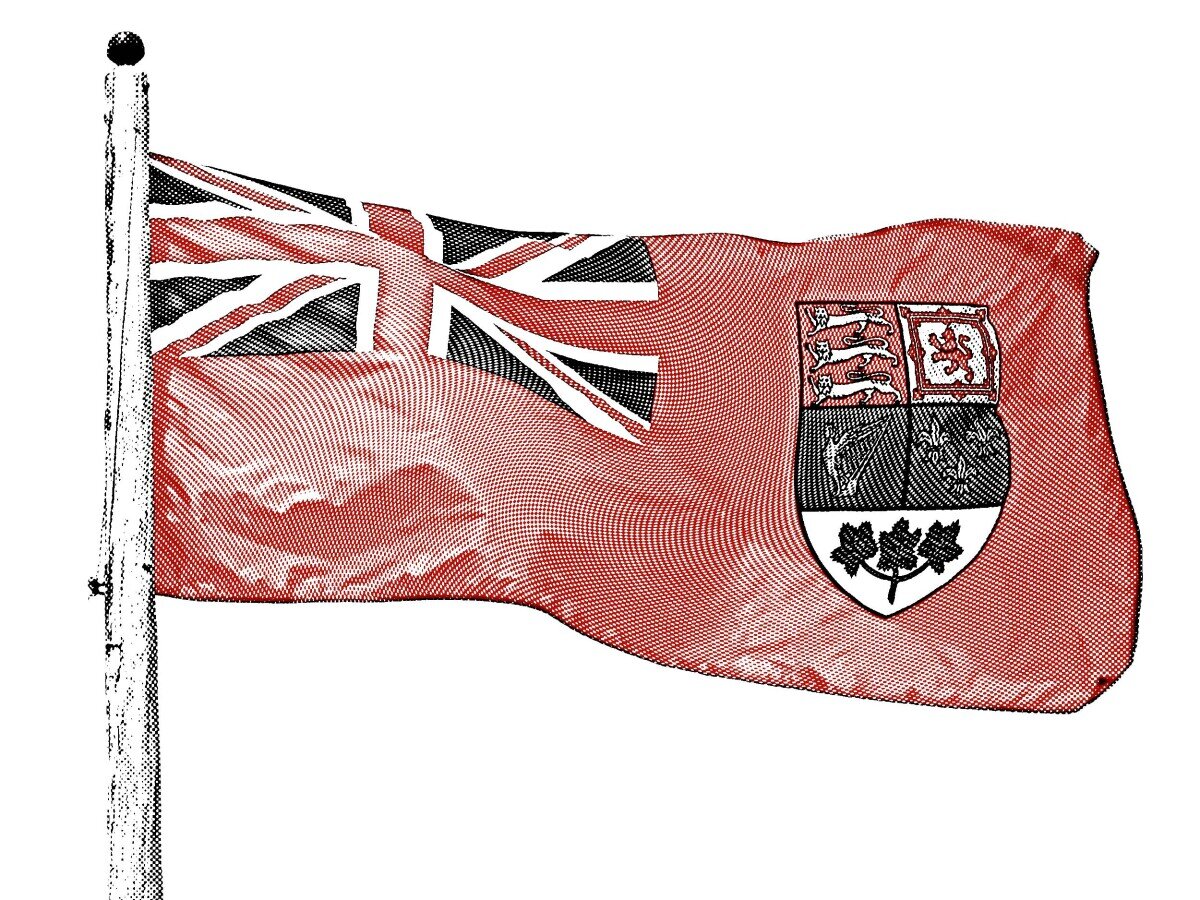
Loyalty to the British throne defined and united Canada. “Here resided the magical, however paradoxical, effect of the creed of loyalty among Canadians: being loyal to another nation and to an absent monarch kept Canadians loyal to each other” (ibid).
Railroads were built, the nation expanded, and Canadians received more and more blessings. But the young dominion faced many challenges staying unified. To keep a lid on these divisions and many of their other problems, Canadians have repeatedly surrendered individual power to an ever stronger central government. “In Canada you are reminded of the government every day,” American philosopher and naturalist Henry David Thoreau published in 1886. “It parades itself before you. It is not content to be the servant, but will be the master ….”
The purpose and heart of our Constitution is “peace, order and good government.” Why We Act Like Canadians author Pierre Berton writes that “good government” to most Canadians usually equates to “strong government.” He writes, “To realize what we consider to be the best of all possible worlds, we Canadians have been prepared to pay a price. The other side of the coin of order and security is authority. We’ve always accepted more governmental control over our lives than [Americans] have—and fewer civil liberties.”
When Canada entered the 20th century, a new ideology rooted itself that took advantage of both internal division and strong government.
In 1898, the Socialist Labor Party formed. In 1919, socialism in the country exploded in the Winnipeg General Strike, in which Marxist workers created their own autonomous government. In 1920, the Communist Party of Canada formed. Ranks of the socialists swelled during the 1930s and the Great Depression. In 1944, Canadians elected their first provincial socialist government. Socialists infiltrated educational and legal institutions and taught that British institutions were colonial and racist.
“It’s a kind of warfare we don’t understand, or know how to cope with,” Mr. Armstrong wrote of communism in 1956. “It uses every diabolical means to weaken us from within, sapping our strength, perverting our morals, sabotaging our educational system, wrecking our social structure, destroying our spiritual and religious life, weakening our industrial and economic power, demoralizing our armed forces, and finally, after such infiltration, overthrowing our government by force and violence! All this, cleverly disguised as a harmless political party! Communism is worldwide psychological warfare!”
The first battleground was for control of the classrooms. Who Killed Canadian History? author J. L. Granatstein writes that the Marxists battled and defeated traditional educators over labor history, then went on to change the teaching of all other fields of history, with each special interest group staking its claim. Socialists replaced the study of prime ministers, parliaments, kings and queens, and the ideals they advanced, with the study of labor leaders, abortion advocates, homosexuals and others, as well as guilt indoctrination for Canada’s wrongs, real and fictional.
In 1964, to appease Quebec separatists and to emphasize Canada’s new direction away from its past with Britain, Pearson’s government changed the Canadian flag from the Red Ensign to the maple leaf.The 1960s marked an important turning point for Canada. Political leaders used the strong federal system to repudiate British traditions and embrace communism.
Prime Minister Lester B. Pearson introduced national health care. In 1964, to appease Quebec separatists and to emphasize Canada’s new direction away from “colonialism,” which was being redefined as an “original sin,” Pearson’s government even changed the Canadian flag from the Red Ensign to the maple leaf.
Pearson also accelerated the decline of the British Empire by helping Egypt finalize its control over the Suez Canal in 1957.
“Only when the British Empire began to fade and fall apart did loyalty lose its magnetic appeal to Canadians,” Gwyn wrote, “thereafter, as was incomparably more challenging, Canadians had to find reasons to be loyal to themselves” (op cit).
The communist universities in Quebec produced a young Pierre Trudeau. He would be Prime Minister for over 15 years and do more than anyone else to fundamentally transform Canada. Trudeau had a long history of admiring and befriending Communist dictators.
In Quebec, the socialist influence inspired a secessionist movement and the 1966 separatist manifesto by Quebecois Marxist Pierre Vallieres. John Weisenberger wrote in C2C Journal: “It cast the lot of the Quebecois into by-now familiar terms—an oppressed group colonized by Anglo-American capitalists and requiring liberation via Marxist revolution.” This also sparked the kidnappings, killings and other terrorist violence by the Front de libération du Québec. French President Charles de Gaulle fanned the flames of separatism by visiting Quebec in 1967 and declaring, “Vive le Québec libre!”
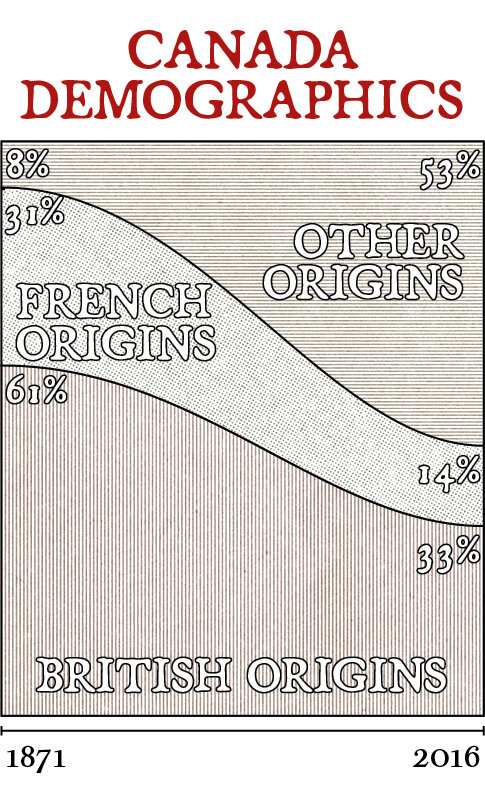
In 1971, Trudeau announced multiculturalism as an official government policy, acknowledging “the contention of other cultural communities that they, too, are essential elements in Canada.”
In Hosea 7:8, God prophesied that Ephraim would be a “cake not turned,” who “mixed himself among the people.” By 1984, the government was spending $23 million to fund 2,000 different ethnic organizations, all representing different identities and interests.
This effort reflected a transformation in Canada’s demographics. An 1871 survey found 61 percent of Canadians had origins in the British Isles, while 31 percent reported French origins. A 2016 survey found only 33 percent claimed British origins and 14 percent French. More than 40 percent claimed multiple origins, some up to six origins, complicating the statistics.
After more than a decade of pushing, Trudeau was able to reform the Constitution itself in 1982. The talks nearly collapsed, but a compromise was reached by all provinces (except Quebec). The new Constitution included a new Charter of Rights and Freedoms that reduced the British monarchy from an authority to a figurehead. This opened the door for the Canadian government to exert even more socialistic and dictatorial control over its citizens.
Section 1 of the charter states that Canadians’ freedoms are “subject only to reasonable limits … as can be justified in a free and democratic society.” This appears reasonable and just, but it grants power to the government to revoke any freedoms it deems exceed those “reasonable limits.”
Activist Supreme Court justices appointed by Trudeau infamously exploited this provision in their 1986 R. v. Oakes decision that established that the government could deny freedoms based on such things as “a commitment to social justice and equality” and “respect for cultural and group identity.” In a single decision, a radical-left court began the Canadian government’s chronic abuse of Section 1.
When Pierre Trudeau’s leadership ended in 1984, Canada was a profoundly different nation. Its identity as a member of the British Commonwealth had been transformed from an asset to an embarrassment, and socialistic, overbearing government had become a way of life.
No Longer Obligated
Now Trudeau’s son Justin Trudeau is prime minister. He has gone so far as to say that his vision is to make Canada the first “post-national” country, which is a fundamental ideal of communism. Barry Cooper wrote in C2C Journal, “Canadians have become citizens of a new kind of regime, just as supporters of a duty-less, transnational and postmodern society hoped” (March 1, 2010).
After Barbados rejected the British throne and became a republic in November 2021, a poll found a majority of Canadians favor cutting all ties with the British monarchy after Queen Elizabeth ii dies.

In Hosea 7:11, Ephraim is called a “silly dove,” a characterization of the decisions of the people and their leaders. Ephraimites in Canada and elsewhere are destroying their own blessings (by attacking their own energy industries, for example), and God is removing those blessings as punishment for their sins.
Mr. Armstrong wrote in The United States and Britain in Prophecy: “No longer is God obligated by His promise to continue our undeserving peoples in world prestige, wealth and greatness. Once we had been given such unrivaled position, it was up to us whether we should keep it.”
If we are to keep these stupendous blessings, God expects obedience to His ways revealed in the Bible. Canada as a nation has rejected its biblical identity in favor of an atheistic, socialist, nanny state. The more Canadians embrace communism, the more difficult it is to rely on God’s promises and blessings. The original compromise with Catholic-French Quebec created a pattern of thinking that has been exploited by radical, Communist leaders. Canada was given incredible blessings of natural resources, rights and freedoms, peace and security. These have been replaced with government overreach, intrusive bureaucracy, and removal of freedoms, natural disasters, soaring inflation and crippling political correctness. Its birthright blessings have been replaced with curses. The Communist goal of creating a post-national country is nearly complete. To paraphrase Judges 21:25, Canada has become a society where “every man does what is right in his own eyes.”
How does the story of Canada end? Mr. Armstrong warned in The United States and Britain in Prophecy: “God is going to keep multiplying chastening—correction—upon our peoples until they do turn from their evil ways—until they turn to the ways that cause peace, happiness, prosperity, all the good things!”
Canada will lose its blessings and its people will suffer national destruction and loss of all their freedoms at the hands of a Catholic European superpower. But God will ultimately use this catastrophe as a blessing of correction. It will make clear that the only source of good in Canada, in other nations of Israel, and in humanity is belief in, obedience to, and love for God. Even now, He is preparing a new government, the Empire of the God Family, that will give all humanity unity, hope, duty, purpose and a truly glorious future.
